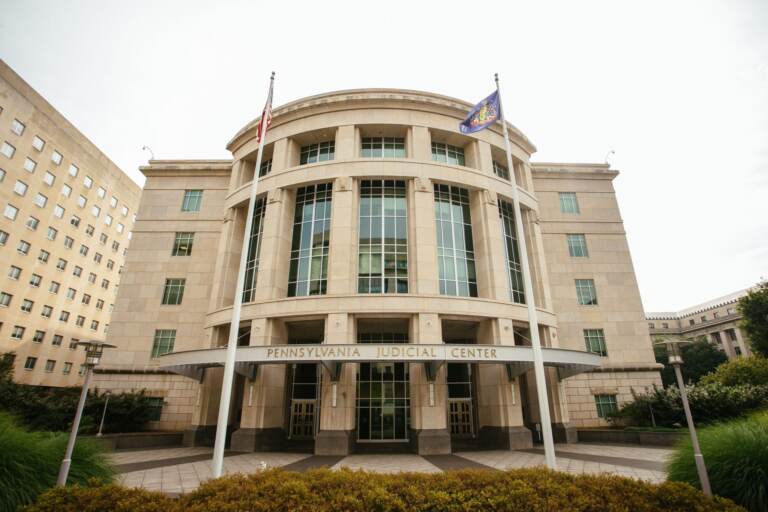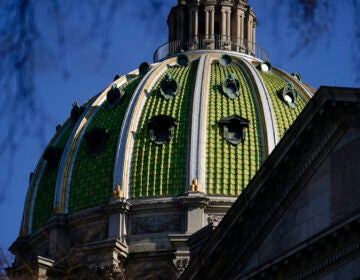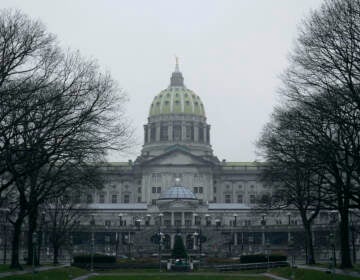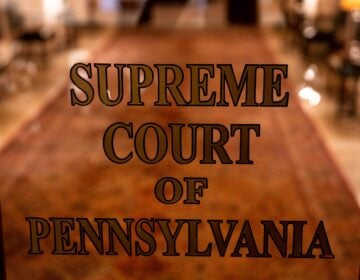The Pa. Supreme Court prepares to decide how to draw the state’s Congressional districts
Candidates were supposed to have been working to get on the ballot by now, but the state's election schedule is on ice because new political maps are not in place yet.

The Pennsylvania Supreme Court ruled Wednesday that it will not await a lower court decision about the future of the state's congressional map and will instead take over the case. (Kent M. Wilhelm / Spotlight PA)
This story originally appeared on WITF
The state Supreme Court is now tasked with deciding how to divide Pennsylvania into 17 Congressional districts for the next decade.
Earlier this month, the state’s highest court took over a case that lobbied Pennsylvania’s judicial system to intervene in the mapmaking process if state lawmakers couldn’t decide on new Congressional boundaries themselves.
On Friday, the court will hear from more than a dozen state lawmakers and voter advocacy groups that drew up ideas on how to proceed. The case will be live-streamed online starting at 9:30 a.m.
Candidates were supposed to have been working to get on the ballot by now, but the state’s election schedule is on ice because new political maps are not in place yet.
Ben Geffen, a lawyer with the Public Interest Law Center, is representing a group of 11 voters that work for groups like the League of Women Voters, Common Cause PA and the NAACP.
He said when the court last had to decide on Congressional maps a few years ago, it took the case seriously.
“The Court moved swiftly,” Geffen said. “The Court issued a decision that gave Pennsylvania what is by all metrics a very fair and competitive map. I don’t know why we should expect a different outcome this time around.”
Justices can now either endorse a map chosen by a lower court, choose from the other options, or appoint an outside expert to draw a completely different one.
The last time the state Supreme Court chose a Congressional map was in 2018.
Carol Kuniholm of Fair Districts PA said the High Court ruled the state’s 2011 Congressional map unconstitutional at that time and both installed a new map and set legal standards for future Congressional boundaries:
“[The 2018 map is] far, far better than the map that we had before,” Kuniholm said. “[It’s] far more compact, there are less split communities, less split counties, and is really much more responsive to voters.”
Commonwealth Court Judge Patricia McCullough, who heard arguments from mapmaking groups late last month, recommended the Supreme Court adopt a map Republican state lawmakers drew and that Democratic Gov. Tom Wolf had vetoed. The Supreme Court appointed McCullough as a “special master” exclusively for that task.
In a more than 200 page document recommending that map, McCullough suggested moving back the nomination petition schedule to the first week of March would allow the primary election to remain on schedule for May 17.
The primary was delayed once before in 2020 because of the COVID-19 pandemic.
WHYY is your source for fact-based, in-depth journalism and information. As a nonprofit organization, we rely on financial support from readers like you. Please give today.






